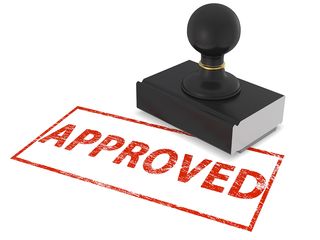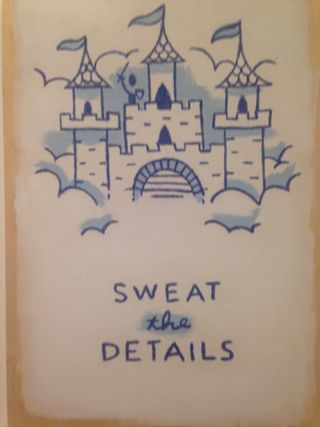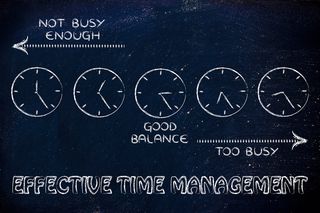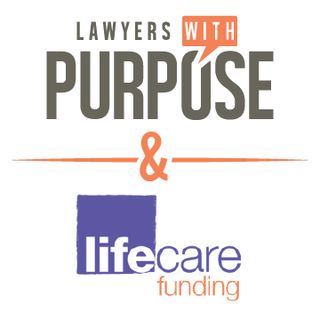Today’s post is another installment in the Focus on Forms series that considers and discusses some of the most common forms associated with Department of Veterans Affairs (VA) pension claims. The goal of the Focus on Forms series is threefold: to define the purpose of the forms; to discuss how they should be completed; and to recommend what to file with these forms. Today’s subject is the 21-534EZ Application for DIC, Death Pension, and/or Accrued Benefits.
 The VA form 21-534EZ is used by a veteran’s surviving dependent to apply for non-service-connected pension, Dependency and Indemnity Compensation (DIC), and accrued benefits. The veteran’s surviving dependent may be a spouse, a parent, or a child. This form is the counterpart to the VA form 21-527EZ, however the 21-534EZ can be used to apply for the various types of benefits outlined above, while the 21-527EZ can only be used by a veteran applying for non-service-connected pension. If you are seeking service-connected compensation benefits for a veteran, you would use the VA form 21-526EZ.
The VA form 21-534EZ is used by a veteran’s surviving dependent to apply for non-service-connected pension, Dependency and Indemnity Compensation (DIC), and accrued benefits. The veteran’s surviving dependent may be a spouse, a parent, or a child. This form is the counterpart to the VA form 21-527EZ, however the 21-534EZ can be used to apply for the various types of benefits outlined above, while the 21-527EZ can only be used by a veteran applying for non-service-connected pension. If you are seeking service-connected compensation benefits for a veteran, you would use the VA form 21-526EZ.
When you download the 21-534EZ from the VA website, the document has 11 pages: six pages of instructions and five pages of form. There is much valuable information provided here. The first few pages of instructions explain what is, and how to file, a Fully Developed Claim (FDC), which is a relatively quicker claim process compared to the Standard Claim Process. The remaining instruction pages discuss what evidence you should provide to support your claim, depending on the type and/or level of benefit sought: Base, Housebound, or Aid & Attendance. The last page of instructions also includes information regarding benefits for a helpless child of a veteran, validity of marriages, and the effective date.
There are 13 sections to VA form 21-534 EZ, numbered with Roman numerals. Three of these are labeled “Must Complete,” while the other 10 sections are to be completed only if applicable. You may recall that this is the opposite of VA form 21-527EZ, which has 10 compulsory sections and three optional. The reason for this is partly because the form 21-534EZ can be used for more than one type of benefit, thus some sections only apply to a particular benefit. Another reason is that, since there usually is a prior claim already on file with the VA, there is certain info that the VA already has, and thus it does not need to be provided again. The sections you should complete for death pension are sections I to III, VII to IX, and XI to XII – that is 8 sections total.
Sections I and II are for the veteran’s and claimant’s Personal and Service Information, respectively. Most of the fields here are self-explanatory. If the surviving spouse previously filed a claim with the VA or you already filed an informal claim/intent to file claim, you may have the VA file number to put in field 6; otherwise put “Unknown.” If the VA ever assigned the veteran a file number, the surviving spouse inherits that same file number. Field 13 asks if the claimant is a veteran, oddly enough because if the claimant is a veteran, he/she should be filling out forms other than the VA form 21-534EZ. Field 16 allows you to select which benefits the claimant is seeking, and you may check all that apply. The instructions for Section II Veteran’s Service Information indicate that it need not be completed if the veteran was receiving VA Compensation or Pension benefits at the time of death, because it is assumed that this would already be on file with the VA; however, as incomplete forms are not always received well by the VA, it is recommended that you complete this section despite these instructions.
Section III is for Marital Information and by definition is applicable only when the surviving spouse is completing this form. Completion of this section may make or break a claim, the reason being that with very few exceptions the surviving spouse only has a claim to the veteran’s pension by virtue of marriage. In most cases, if the claimant cannot prove a valid marriage to the veteran, the claim will be denied regardless of how eligible he/she otherwise might be. The next three sections are only required if the claimant is a dependent child (Section IV), the veteran’s parent (Section V), or is seeking Dependency and Indemnity Compensation (Section VI); otherwise they can be crossed off as non-applicable.
The next three sections (VII to IX) are related to finances and are similar to those same-numbered sections in VA form 21-527EZ. Section VII: Net Worth is for reporting all countable assets of the claimant, and any dependents should be listed here as of the effective date. Sections VIII and IX are both for reporting income of the claimant and any dependents as of the effective date. The difference is that Section VIII: Gross Monthly Income should be used to report income that is received in fixed, monthly payments, such as Social Security or retirement pension, while Section IX: Expected Income is for reporting annual amounts of income that are not received in fixed, monthly payments. The effective date is the date that the informal claim or intent to file a claim was filed, or if not filed, the date the formal claim was submitted. Every source of income received by the claimant and any dependent should appear in either section VIII or IX, but never in both.
Section X may be used for reporting unreimbursed medical, last illness, burial, or other expenses; however, if there are many expenses, the VA form 21P-8416 Medical Expense Report can be used, in which case section X is completed by cross referencing VA form 21P-8416. The last page and the three last sections of form 21-534EZ consist of Direct Deposit Information (XI), Claim Certification and Signature (XII), and Witnesses to Signature (XIII). The first two of these sections must be completed and the claimant must sign Section XII, as the VA does not recognize Powers of Attorney. The final section is only applicable if the claimant signed the previous section with an “X,” in which case two witnesses must also sign to vouch for the identity of the signer.
What you file with the VA form 21-534EZ should support the data you entered in the 13 sections of the form. This would include photo identification, birth certificate and military discharge paperwork. More importantly, include marriage certificates, divorce decrees and/or death certificates to properly document marriage to the veteran and the proper dissolution of any prior marriages. The practice in our firm is also to provide financial statements to support the net worth and income as of the effective date reported in sections VII to IX, although this is not required by the VA.
In summary, the VA Form 21-534EZ is the primary application form for a veteran’s surviving dependent seeking death pension benefits, Dependency and Indemnity Compensation (DIC), and/or accrued benefits. It is best practice to complete all three mandatory sections of this form and any of the remaining 10 sections, if applicable, and to provide all documents that support what is declared on the form. Keep up to date with changes to VA forms by updating your LWP-CCS software whenever new releases are available and by checking the VA website regularly.
Did you know we offer a FREE "VA Tech School" webinar every month? Click here to register now for this complementary webinar on Wednesday, November 4th where we'll be talking about all the changes that have happened and will happen to VA Benefits in 2015 and 2016 that may impact how you do VA planning in your firm. Register now to find out what you will miss from the Tri-annual Practice Enhancement Retreat legal-technical focus session “Changes to VA Benefits in 2015/16 and How to Profit From Them”.
By Sabrina A. Scott, Paralegal, The Elder & Disability Law Firm of Victoria L. Collier, PC and Director of VA Services for Lawyers with Purpose.
Victoria L. Collier, Veteran of the United States Air Force, 1989-1995 and United States Army Reserves, 2001-2004. Victoria is a Certified Elder Law Attorney through the National Elder Law Foundation; Author of “47 Secret Veterans Benefits for Seniors”; Author of “Paying for Long Term Care: Financial Help for Wartime Veterans: The VA Aid & Attendance Benefit”; Founder of The Elder & Disability Law Firm of Victoria L. Collier, PC; Co-Founder of Lawyers with Purpose; and Co-Founder of Veterans Advocate Group of America.
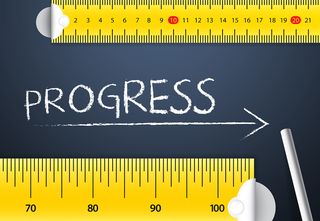 It’s a great line that hits the nail on the head regarding how to approach learning: “practice makes progress.” It plays on that old phrase that has made students of any discipline uptight for centuries. It puts the emphasis on practice instead of perfection, which we all know is evidently indefinable.
It’s a great line that hits the nail on the head regarding how to approach learning: “practice makes progress.” It plays on that old phrase that has made students of any discipline uptight for centuries. It puts the emphasis on practice instead of perfection, which we all know is evidently indefinable.

